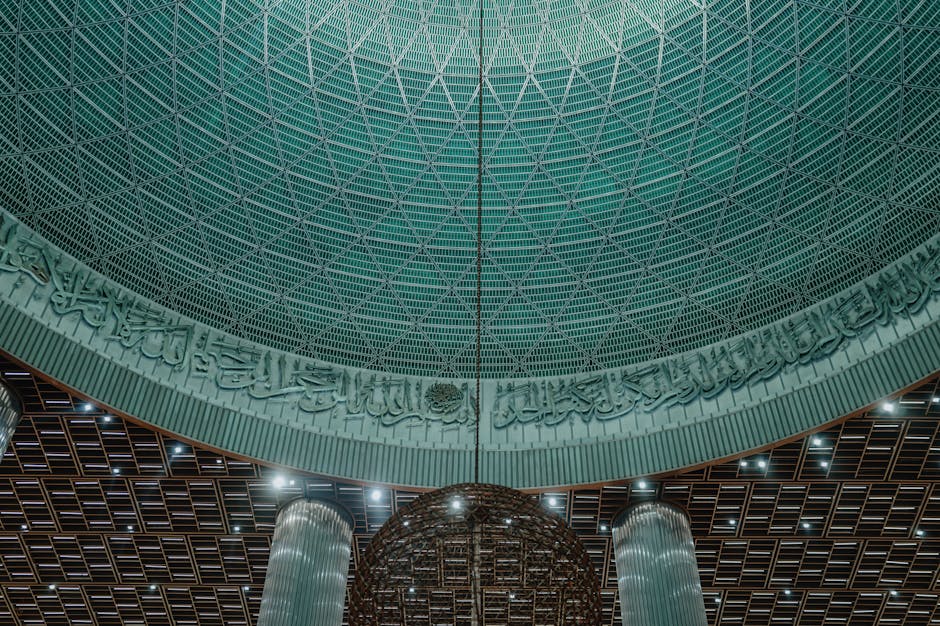A compelling argument for independent spirituality rests on the inherent human capacity for introspection and the universal search for meaning. Humans, across cultures and throughout history, have consistently sought answers to existential questions: What is the purpose of life? What happens after death? What is my place in the universe? These inquiries are fundamental to the human condition and frequently drive spiritual exploration. Addressing these questions doesn’t inherently require adherence to a specific religious dogma. Many individuals find solace and purpose through practices like mindfulness meditation, nature connection, contemplation, or creative expression, all without relying on the structures of a formal religion. These practices cultivate inner peace, enhance self-awareness, and foster a sense of connectednessthe core elements often associated with a vibrant spiritual life.
Further reinforcing this separation, many find that organized religion, despite its potential benefits, can sometimes hinder genuine spiritual growth. Rigid doctrines, hierarchical structures, and potential conflicts with personal values can create barriers rather than pathways to deeper understanding. The focus on adherence to rules and rituals can overshadow the cultivation of inner experience and personal connection with the spiritual realm. For these individuals, a rejection of organized religion isn’t a rejection of spirituality; rather, it’s a liberation enabling a more authentic and personalized spiritual journey. They are free to explore their beliefs and practices without the constraints of predetermined dogma or the pressures of communal expectations.
However, dismissing the contribution of religion to spirituality would be an oversimplification. For countless individuals, religious affiliation provides a vital framework for their spiritual lives. Religion offers a community of shared belief, rituals that provide structure and meaning, and a ready-made set of ethical guidelines. The sense of belonging and support offered by religious communities can be deeply enriching, providing a crucial element in the spiritual journey. The established practices, scriptures, and spiritual leaders can provide a roadmap for navigating complex spiritual questions and offer valuable guidance during times of personal challenge. Furthermore, many religious traditions offer profound insights into human nature, the universe, and our place within it, offering rich intellectual and emotional nourishment that contributes substantially to a spiritual existence. Therefore, dismissing religion as antithetical to spirituality overlooks the significant role it plays for a vast segment of the population.
The distinction between spirituality and religion becomes even clearer when considering the diverse range of spiritual paths that exist outside established religious frameworks. New Age spirituality, with its emphasis on personal growth and self-discovery, exemplifies this separation. Practices like yoga, energy healing, and various forms of meditation, often integrated into New Age philosophies, contribute to a rich spiritual experience independent of religious affiliation. Similarly, humanist spirituality emphasizes human values, reason, and ethical living, finding meaning and purpose in human connection and societal contribution without invoking supernatural beliefs or religious dogma. These examples demonstrate that a robust and meaningful spiritual life can be cultivated and nurtured outside the context of traditional religious structures.
Furthermore, the rise of secular humanism underscores the potential for spirituality without religion. Secular humanism emphasizes ethical living, reason, and social justice, finding meaning and purpose in human relationships and contributions to society. While not necessarily involving a belief in a higher power or supernatural forces, secular humanism embodies a deep appreciation for human potential and the importance of living a meaningful life. This approach showcases a distinct spiritual path rooted in human values and ethical principles rather than religious doctrines, illustrating the distinct possibility of spirituality independent of religious affiliation.
Nevertheless, it is crucial to acknowledge that the line between spirituality and religion can be blurry. For some, their religious affiliation forms an integral component of their spiritual experience, providing a framework for their beliefs, practices, and sense of community. Their spirituality is inextricably linked to their religious identity. Therefore, categorizing all spiritual experiences as independent from religious affiliation would be an oversimplification and an inaccurate portrayal of the multifaceted nature of human spirituality.
In conclusion, the question of whether spirituality can exist independently of religious affiliation has a nuanced answer. While organized religion can certainly contribute significantly to an individual’s spiritual journey by offering community, structure, and a rich intellectual and ethical framework, the essence of spirituality the search for meaning, purpose, and connection resides within the individual. Numerous paths to spiritual growth exist outside of religious institutions, evidenced by the flourishing of diverse spiritual practices and philosophies that emphasize personal experience, self-discovery, and human connection. The capacity for spirituality is inherent in the human condition, and its expression is ultimately shaped by the individual’s unique journey and choices. Whether this journey involves religious affiliation is a matter of personal preference and conviction, not a prerequisite for the existence of a rich and fulfilling spiritual life.
